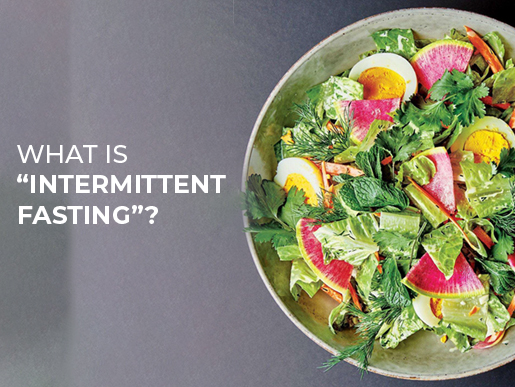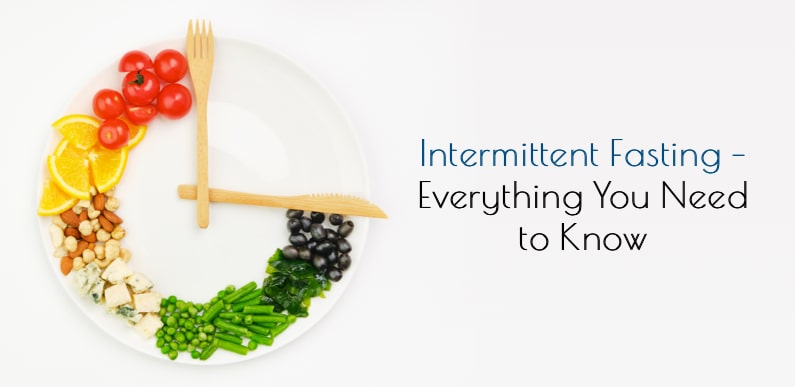

One of the most popular trends in today’s health, fitness, and diet world is something called intermittent fasting. You may have heard of it, you may have even tried it out!
Basically, intermittent fasting is an eating pattern that focuses on creating daily cycles of eating and fasting. It’s not necessarily about what you should eat (though you should definitely keep that in mind), it’s about when you should eat.
Fasting has been around for as long as humans have. According to Johns Hopkins neuroscientist Mark Mattson, human bodies have evolved to be able to go without food for several hours – or even days – because of how difficult it was for us to get food as hunter-gatherers.
Fasting is also an important tradition in many cultures and religions, including Islam, Christianity, Judaism, Buddhism, and more.
So how does intermittent fasting work? According to Mattson, the basic idea is that your body starts burning fat after it burns through all of the food you eat during the day. Mattson calls the process metabolic switching and it may have tons of benefits.
Benefits and effects
Fasting is not exactly fun. It takes some will-power to get used to it. Like anything though, with some practice and commitment, you’ll find it become a normal part of your everyday life.
Intermittent fasting can be a great tool for weight loss. By restricting the amount of time you allow yourself to eat, you will likely restrict the total amount of calories you consume. This leads to weight loss. This doesn’t mean you can binge eat during your eating cycles. You still have to maintain a healthy diet in order to see results.
Lots of studies have been done on intermittent fasting in humans and animals. Many of them have seen results that show benefits in weight loss, inflammation reduction, and brain health.
When you fast, a lot of things happen in your body. Your growth hormone levels go up, which can benefit fat loss and muscle gain. Your insulin sensitivity improves and levels drop. Also, your cells repair themselves.
Methods – When you start intermittent fasting, you don’t go days without eating. Generally, you set a schedule for every day. There are a few popular ones. Here they are:
- 16/8: This method is arguably the most popular. When using the 16/8 method, you fast for 16 hours per day and restrict all of your eating to the other 8. For example, you eat from 1 PM to 8 PM, then fast for the rest of the night until 1 PM the next day. This method is probably the easiest to follow for those who are new to intermittent fasting. Use the time you are asleep as fasting time and move your first meal back until 1 PM. It will still take some getting used to, but this method is pretty low-impact.
- 5:2: Basically, the 5:2 method involves eating normally for five days and restricting yourself to 500-600 calories on two nonconsecutive days. For example, on Monday and Friday, you only eat one meal for the entire day. On every other day of the week, you eat normally. The 5:2 method may seem easy as well, but it can also be a trap for unhealthy eating. You have to remember to not cheat and splurge on the days you are eating normally.
During your fasting periods, it’s important to remember to stay hydrated. It will help take away a little bit of your hunger. You can also try drinking tea and black coffee. It’s also important to remember that starting an intermittent fasting diet will be an adjustment. You will probably be a little crankier than usual for a few weeks before your body adjusts to its new eating cycles.
Should you try it?
That depends. Intermittent fasting may not be for everybody. It is also not the only way to live a happy, healthy lifestyle. If you eat healthy at regular times and exercise, you will likely see real, sustainable results.
However, if you feel like you need to try something new because nothing is working for you, give intermittent fasting a shot (after you talk to your doctor). It is a great way to change your relationship with food and create a structure in which you can eat healthy and burn fat.
As always, consult your doctor before you start any diet program. Everybody has different circumstances and intermittent fasting can be potentially unhealthy for pregnant women, people with diabetes, children, and anybody who has struggled with an eating disorder.
For more Nutrition-related videos, click here!






